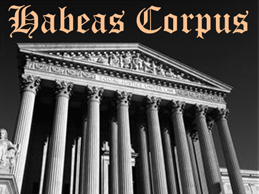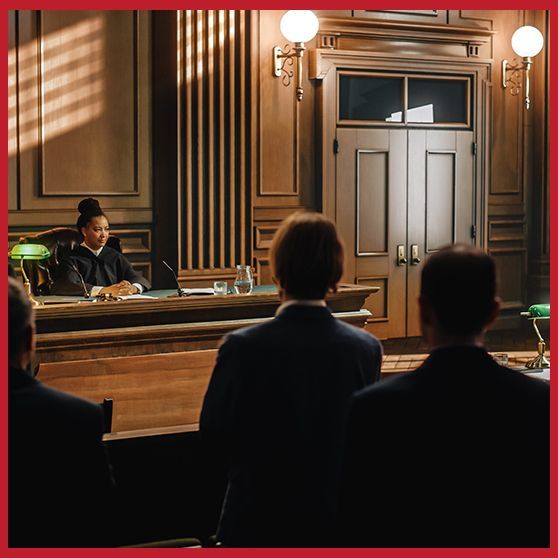Browsing Habeas Corpus with the Help of an Experienced Attorney
Browsing Habeas Corpus with the Help of an Experienced Attorney
Blog Article
Comprehending the Function of a Post-Conviction Legal Representative in Seeking Justice After a Criminal Sentence
In the complex landscape of post-conviction lawful process, the duty of a post-conviction lawyer is critical in browsing the path to justice after a criminal sentence. Past the confines of a test, these attorneys engage in a complex method aimed at uncovering new evidence, challenging lawful mistakes, and promoting for their customers' rights. The details of post-conviction job need a mix of legal acumen, investigatory skills, and tactical assuming to unwind the complexities of a situation and seek avenues that may have been forgotten or underexplored. As the quest of justice extends beyond the confines of first process, the role of a post-conviction lawyer arises as a sign of expect those seeking to correct injustices and reclaim their rights within the lawful system.
Post-Conviction Lawyer's Investigative Work
Post-conviction legal representatives participate in careful investigatory work to reveal brand-new evidence, procedural errors, or transgression that can potentially cause rescinding a sentence. This investigative phase is essential in the post-conviction process as it aims to recognize any kind of forgotten information or legal bad moves that may have affected the outcome of the initial test. Post-conviction lawyers look into situation data, witness testaments, and lawful paperwork with a fine-tooth comb, looking for any inconsistencies or irregularities that might be premises for appeal.
Through thorough investigation, post-conviction attorneys intend to drop light on possible injustices that may have occurred throughout the original trial. By looking at every facet of the lawful proceedings, post-conviction attorneys work relentlessly to discover any elements that may have affected the judgment.
Crafting Appeals and Petitions
In the search of justice after a conviction, skilled lawyers carefully craft allures and petitions to present compelling arguments for the reconsideration of legal choices. Crafting allures and petitions needs a deep understanding of the legal system, focus to detail, and strategic reasoning. Post-conviction attorneys examine test records, determine prospective errors or offenses of legal rights, and create lawful disagreements to test the sentence or sentence.
When crafting a charm, attorneys focus on highlighting lawful errors that might have influenced the outcome of the situation. They investigate instance law, statutes, and lawful criteria to support their disagreements. Petitions, on the various other hand, might involve presenting new proof that was not available throughout the trial or demonstrating changes in the regulation that require a testimonial of the conviction.
Furthermore, post-conviction legal representatives must abide by rigorous procedural rules and target dates when submitting allures and petitions. They should present their arguments clearly and persuasively to persuade the court to provide alleviation to their clients. Via thorough crafting of charms and applications, post-conviction legal representatives make every effort to secure justice for people that have actually been wrongfully convicted or unfairly punished.

Pursuing Post-Conviction Relief
Post-conviction alleviation includes a variety of legal devices created to challenge the validity of a conviction or sentence. Post-conviction lawyers play a crucial function in browsing these complicated procedures, ensuring that all legal choices are checked out to fix injustices that might have occurred throughout the trial or sentencing stage.
One common kind of post-conviction alleviation is filing a petition for post-conviction alleviation, commonly based on cases of inadequate assistance of advise, prosecutorial misconduct, newly discovered proof, or constitutional offenses. Experienced post-conviction lawyers have the skills and expertise required to determine practical lawful insurance claims, conduct examinations, and existing engaging disagreements to safeguard alleviation for their clients.
Using Forensic Proof
When challenging a sentence or sentence, the calculated usage of forensic evidence can be a powerful tool in post-conviction legal proceedings. Forensic proof includes a wide range of scientific techniques utilized to investigate criminal offenses and develop truths in court. Post-conviction legal representatives can take advantage of forensic evidence to test the legitimacy of sentences by providing new clinical findings that were not readily available during the initial test.

Participating In Sentence Alterations
Post-conviction lawyers may explore the possibility of sentence adjustments as a lawful method to attend to disproportionate or unfair sentences bied far in criminal instances. Sentence modifications entail looking for adjustments to the terms of an accused's sentence after a sentence has taken place. These alterations can include reducing the size of a sentence, changing the sort of penalty imposed, or discovering different sentencing choices.
Post-conviction legal representatives can pursue sentence modifications with various lawful devices, such as submitting activities for sentence reduction, appealing for compassionate release, or discussing plea offers for lowered sentences. They have to meticulously examine the circumstances of the case, examine the lawful grounds for looking for an alteration, and present engaging debates to the Learn More court supporting the demand for a revised sentence.
Participating in sentence modifications needs a thorough understanding of criminal legislation, sentencing guidelines, and the specific treatments associated with looking for post-conviction alleviation. Post-conviction legal representatives play a vital function in promoting for fair and just results by tough sentences that are unduly harsh or do not line up with the concepts of justice.
Conclusion
In final thought, the duty of a post-conviction attorney is crucial in seeking justice after a criminal sentence. Via investigatory work, crafting appeals and requests, seeking post-conviction relief, making use of forensic proof, and participating in sentence alterations, these attorneys play a crucial function in promoting for their clients and making sure that their civil liberties are maintained within the criminal justice system. Their commitment and knowledge are essential in navigating the complexities of post-conviction process and accomplishing a reasonable outcome for people dealing with criminal sentences.
Report this page